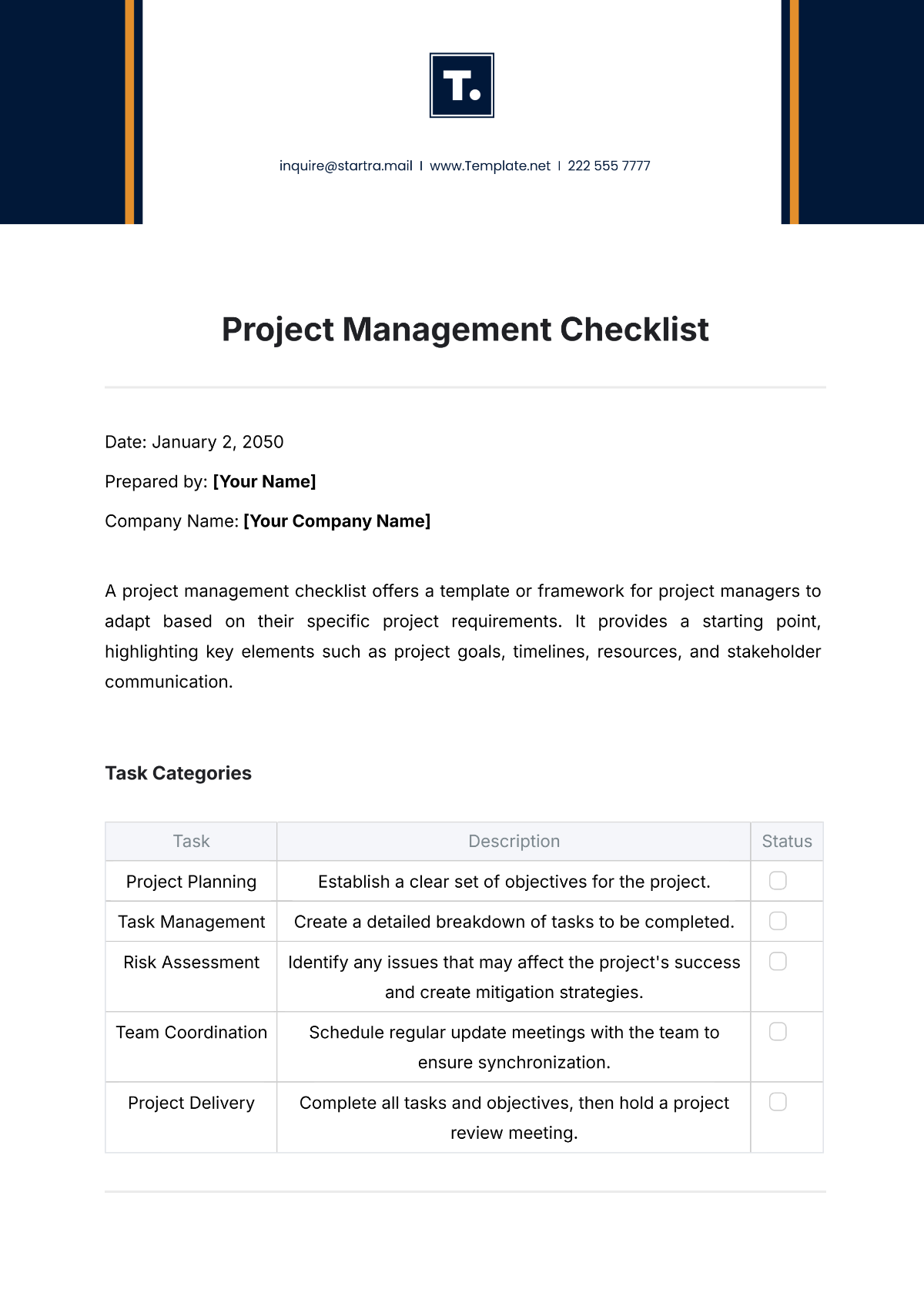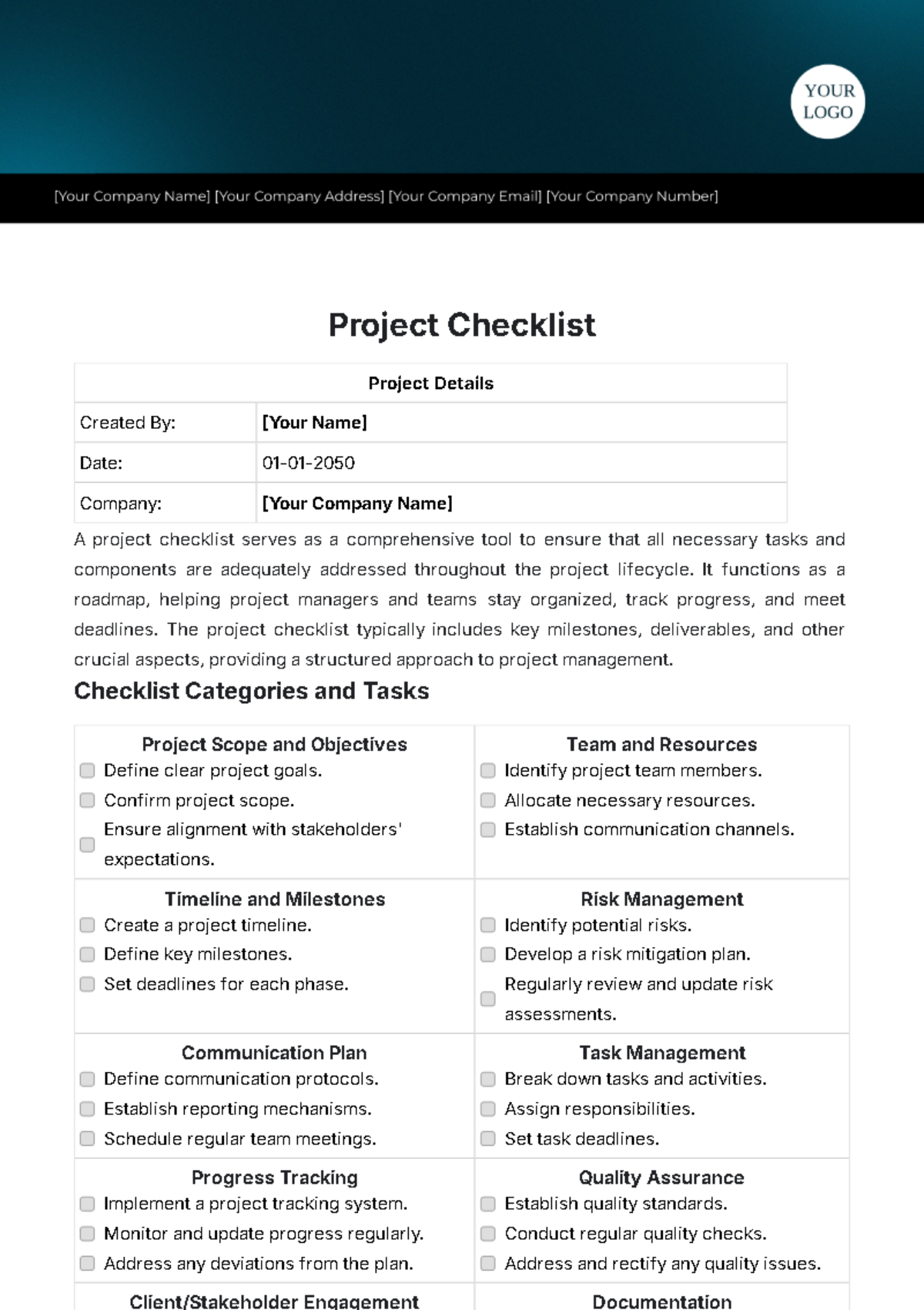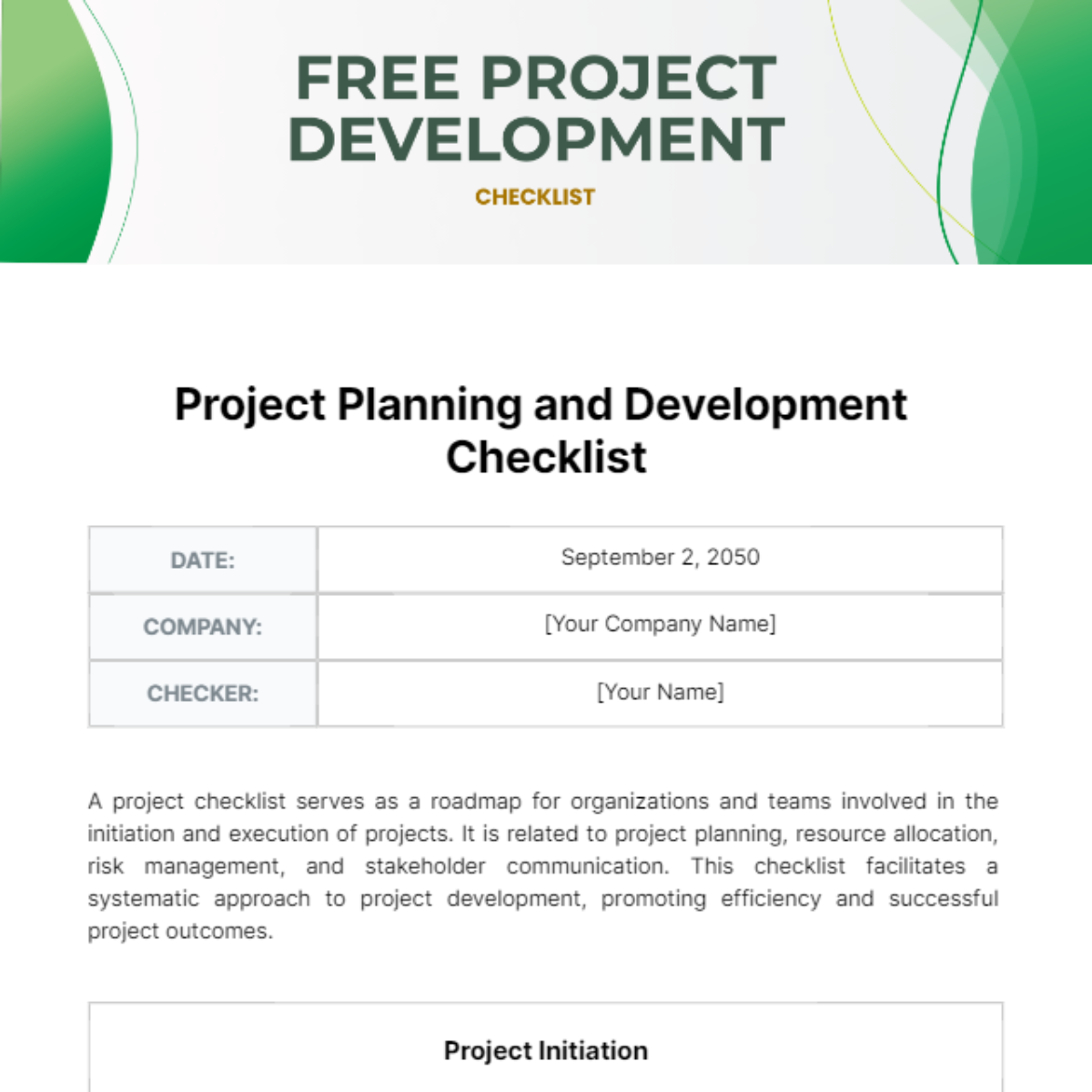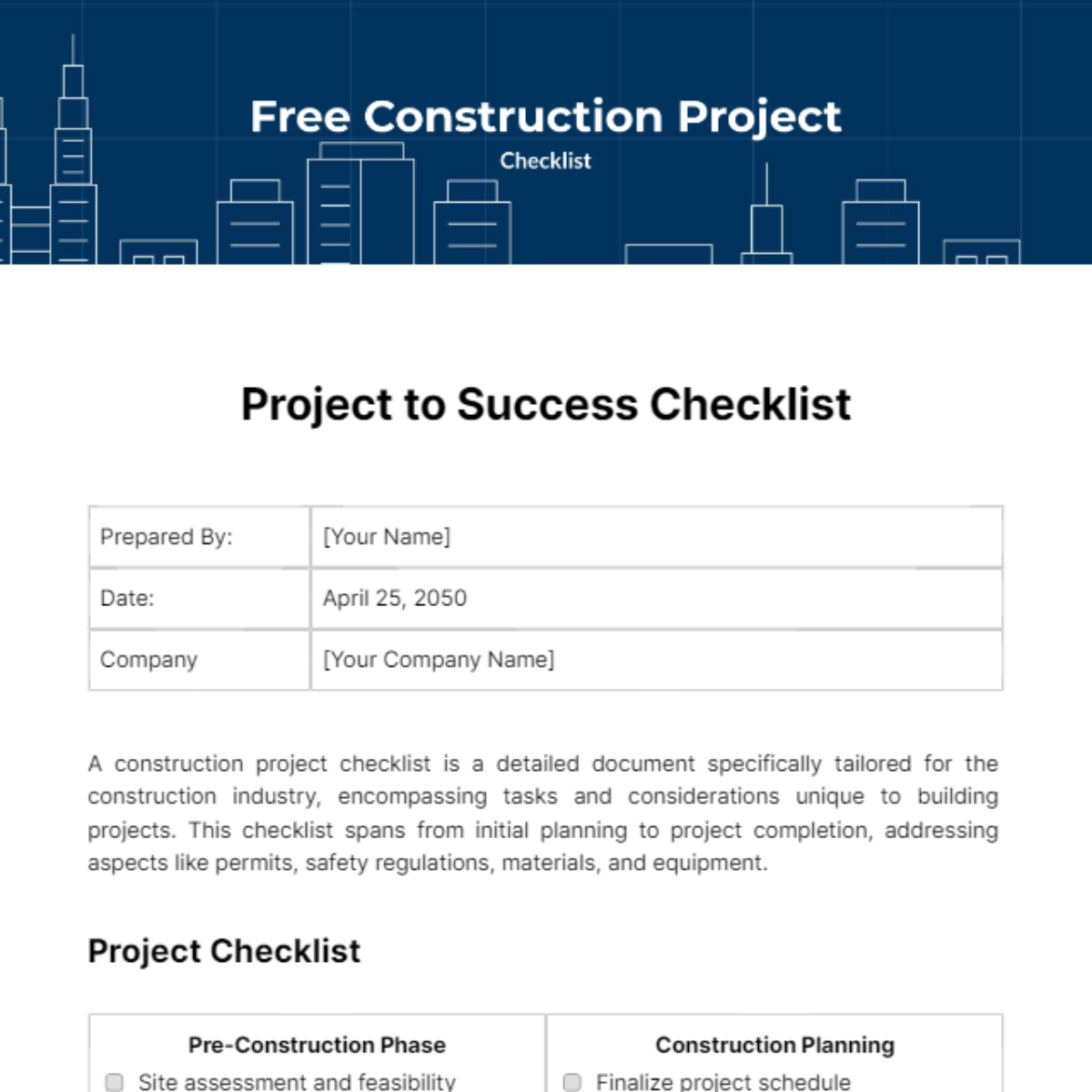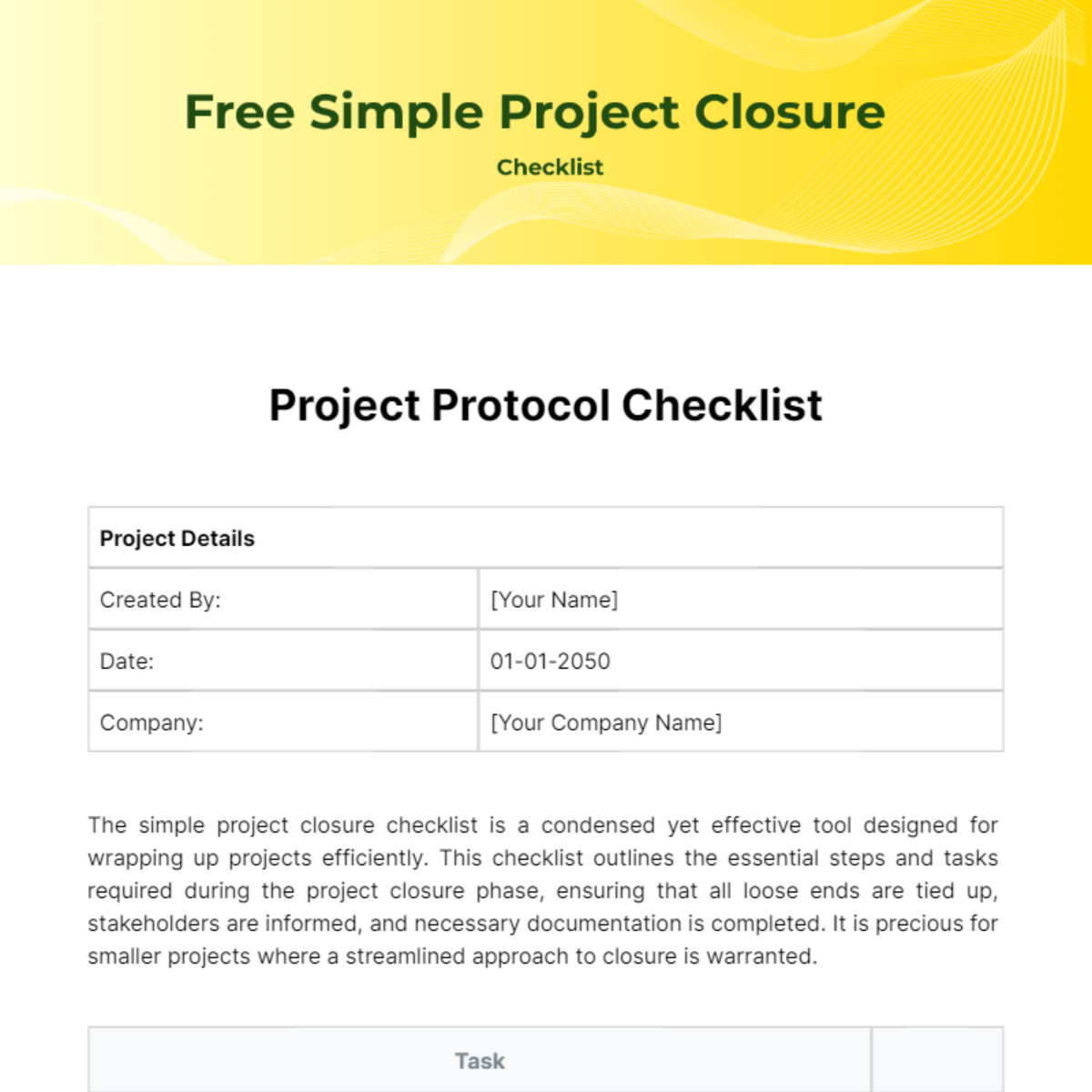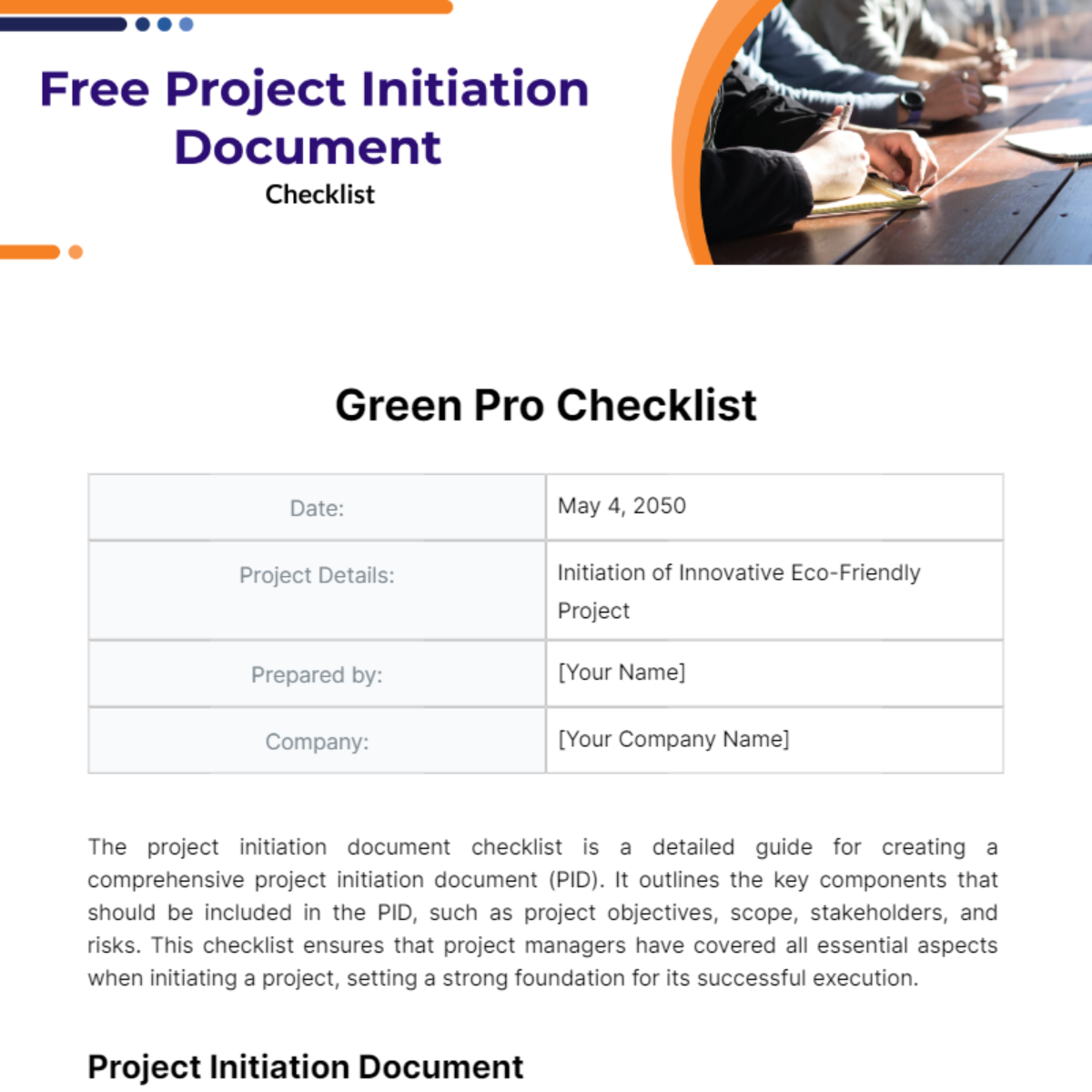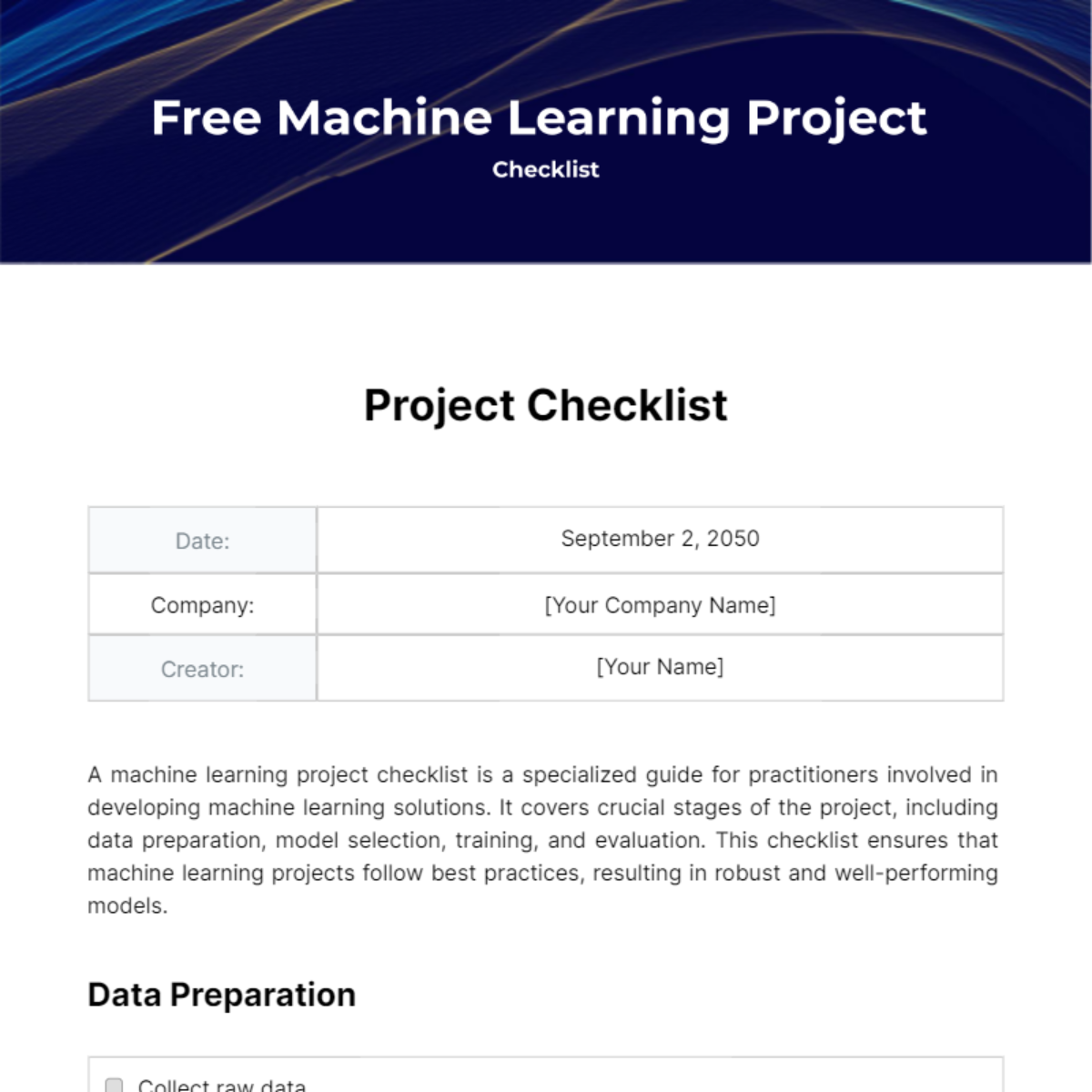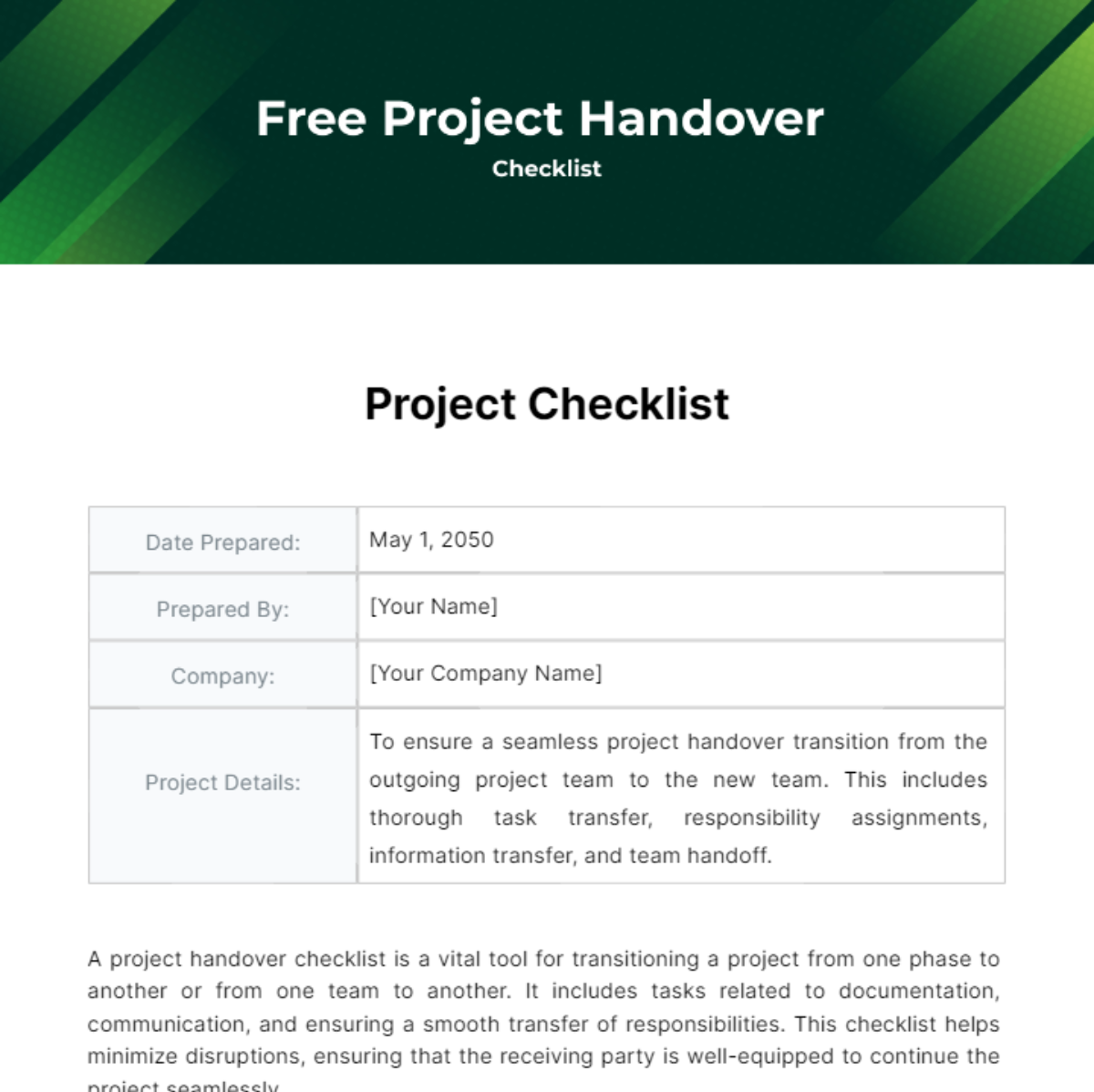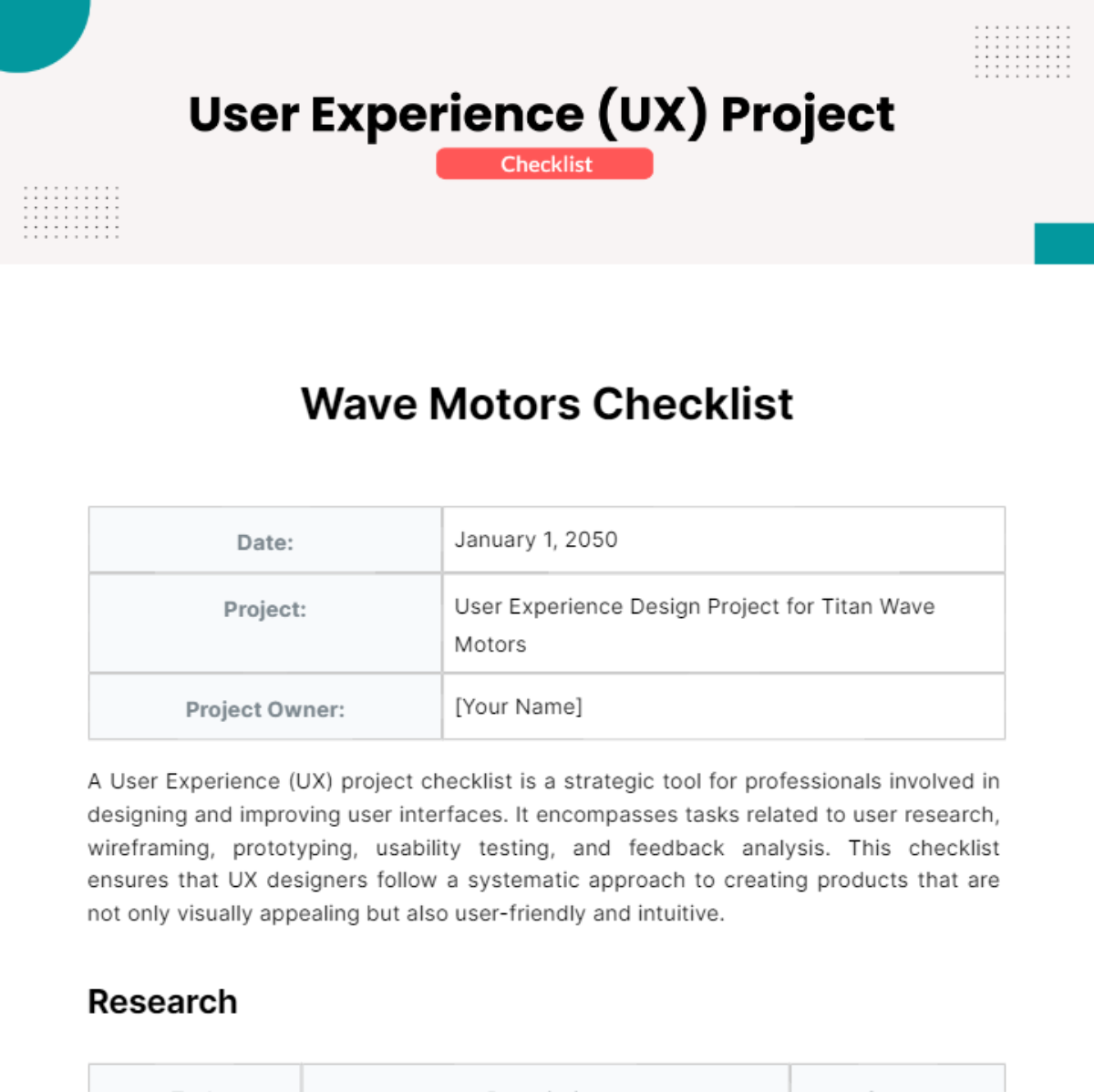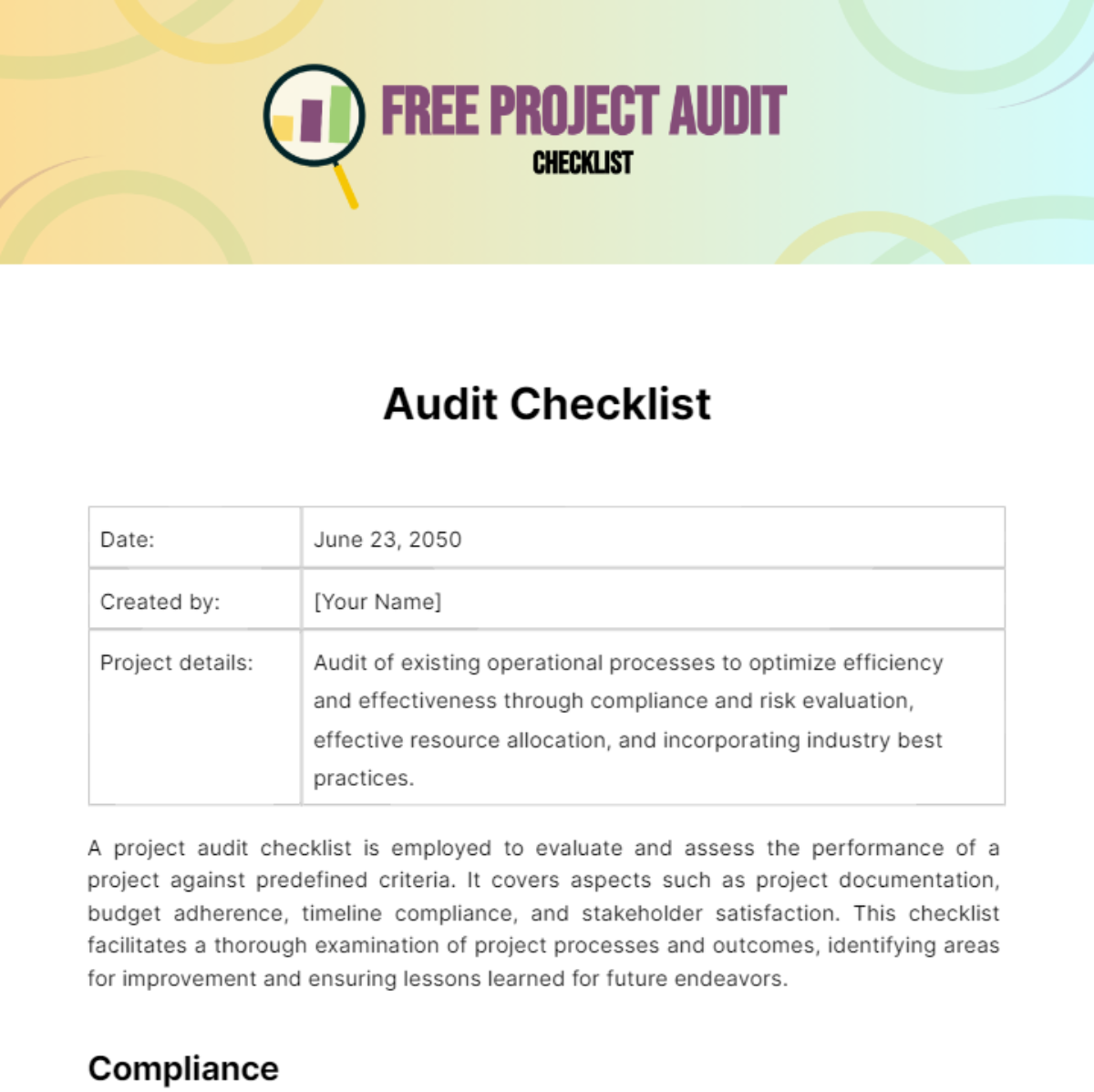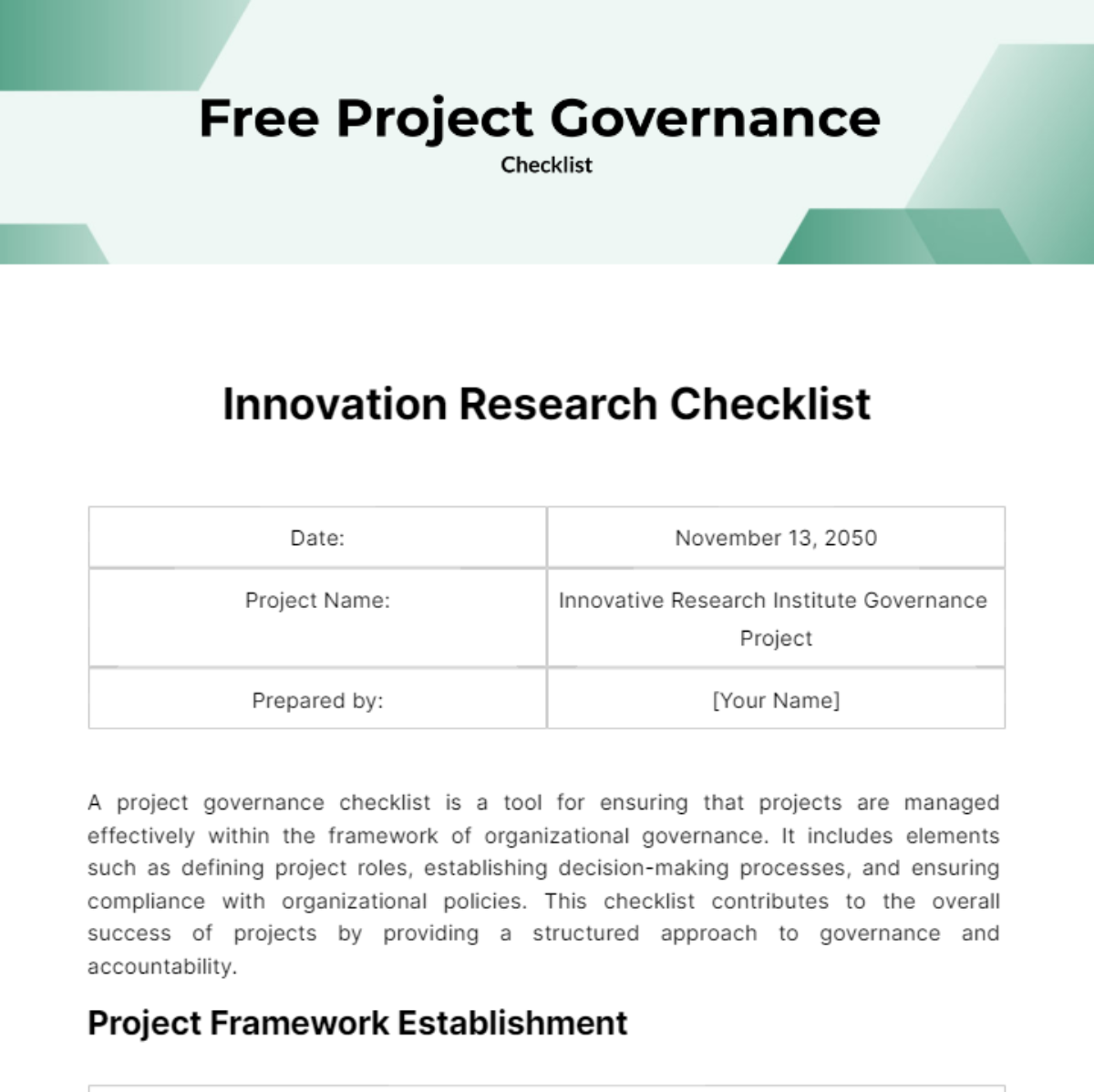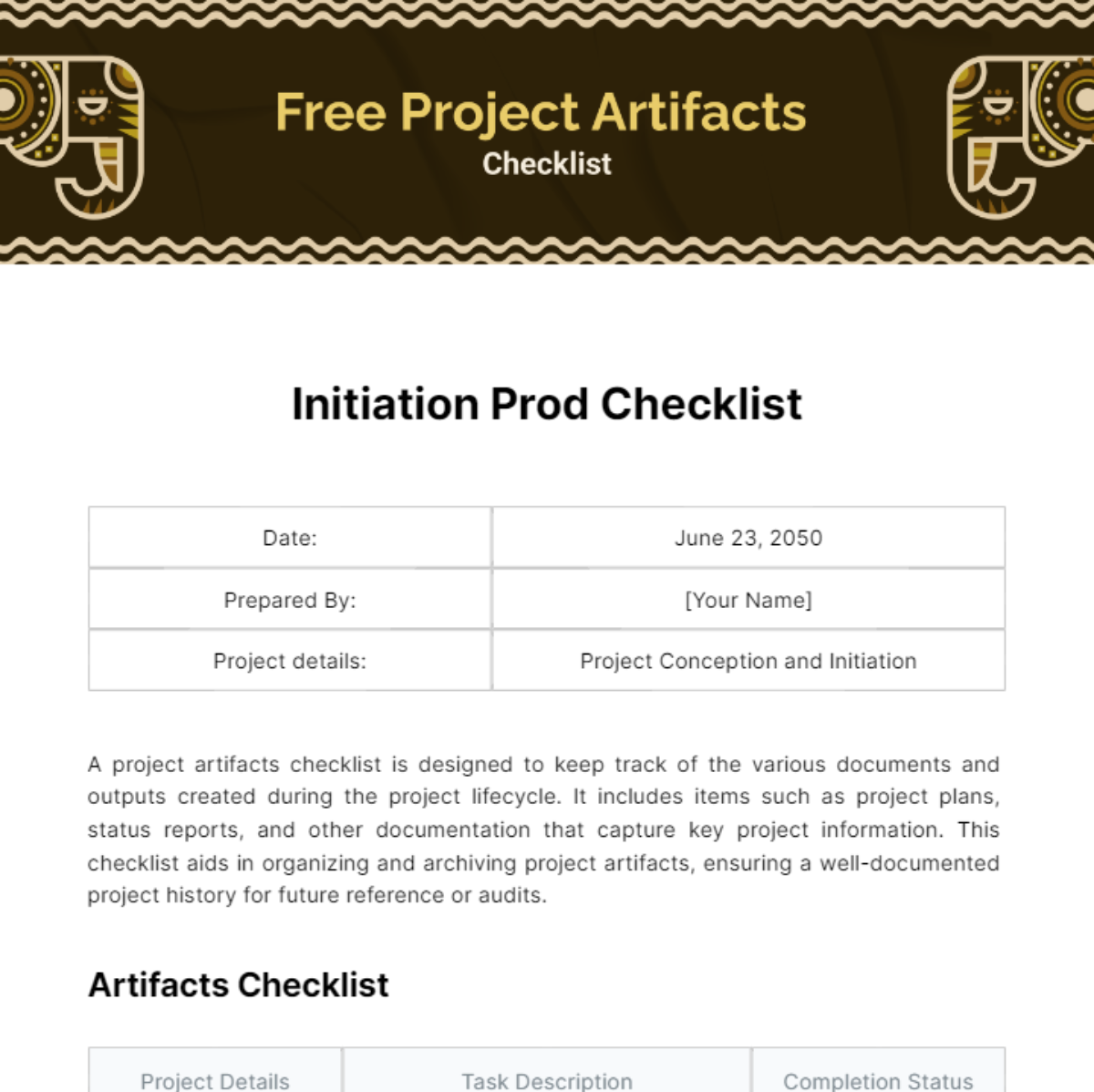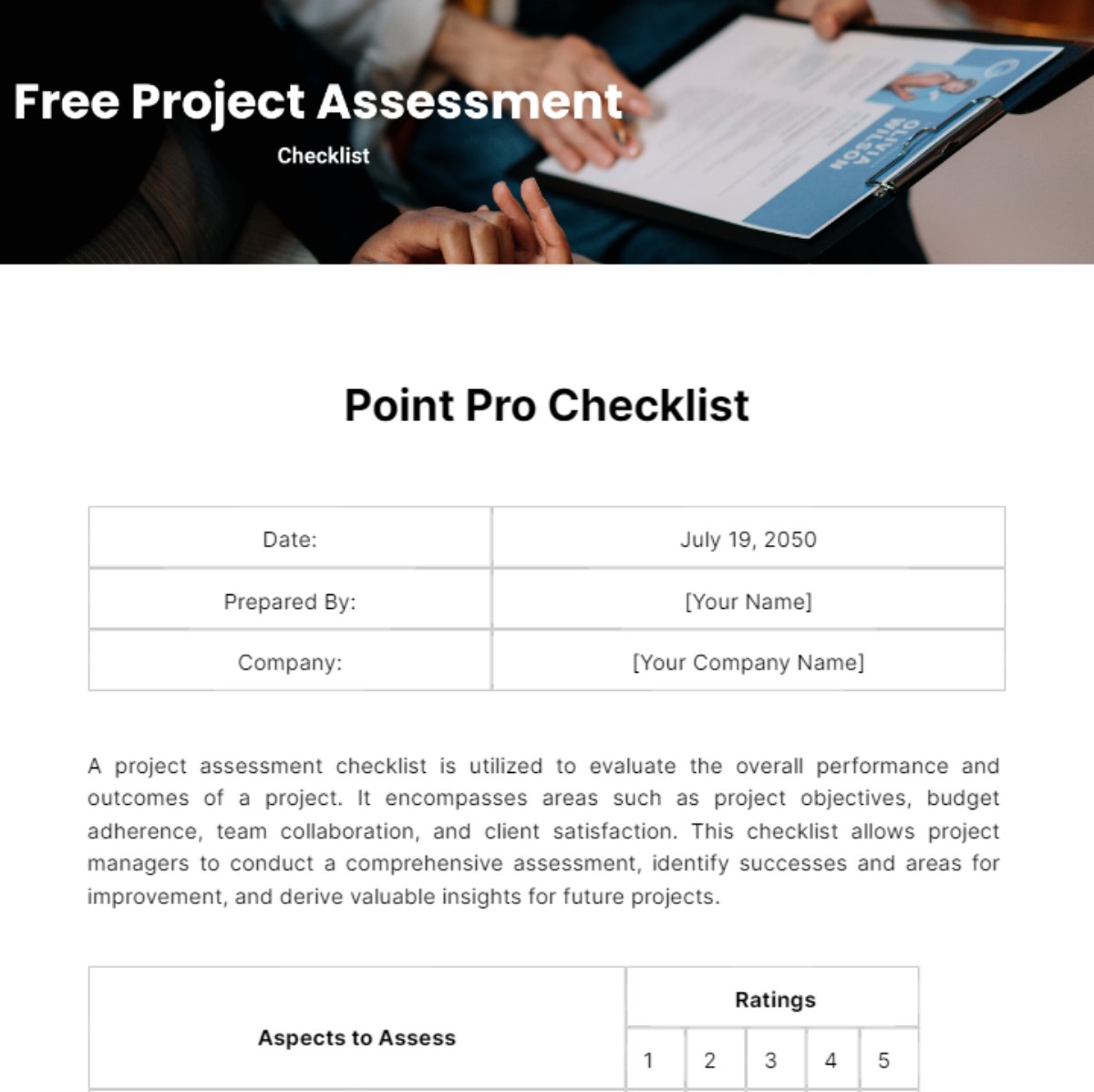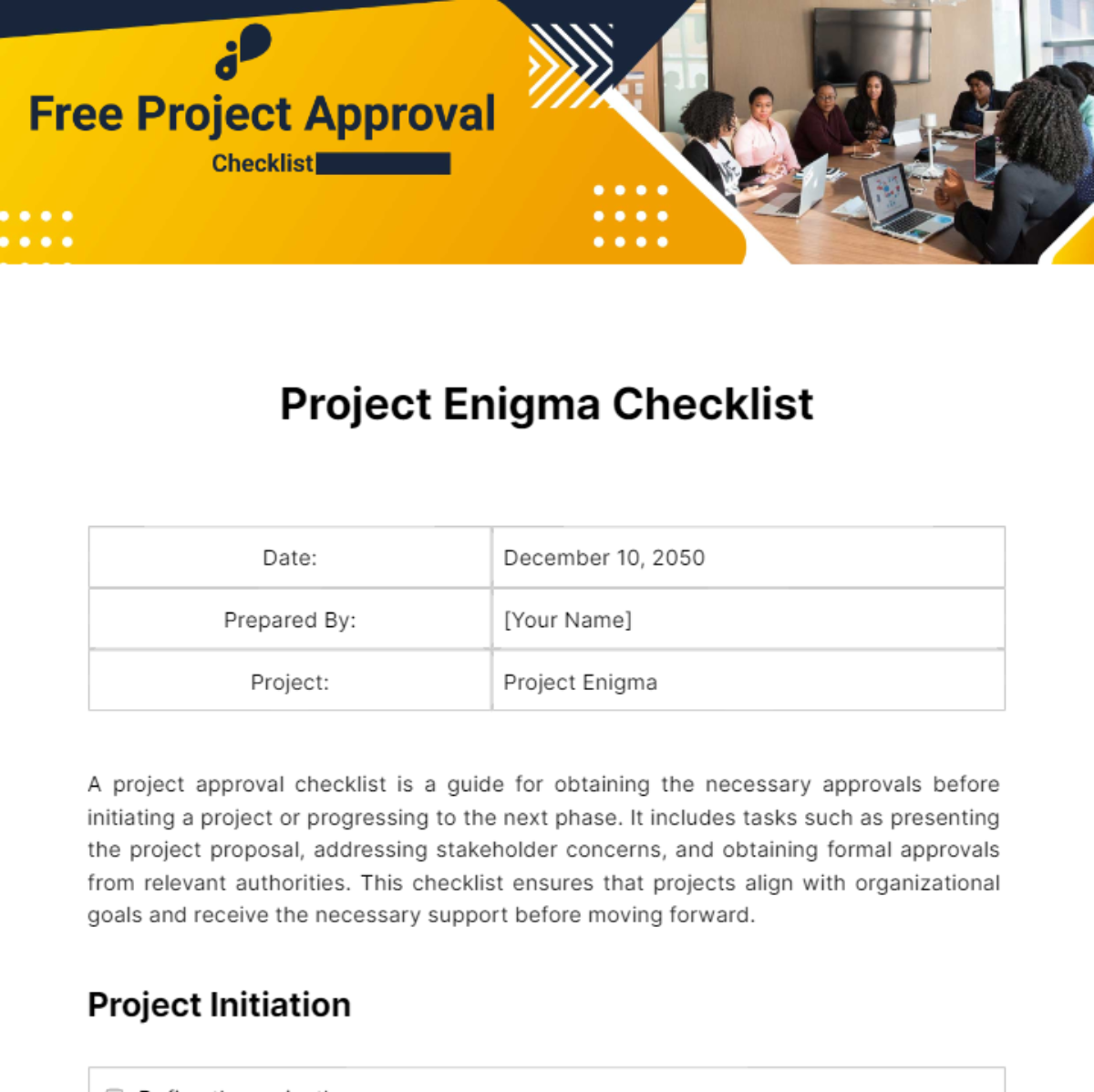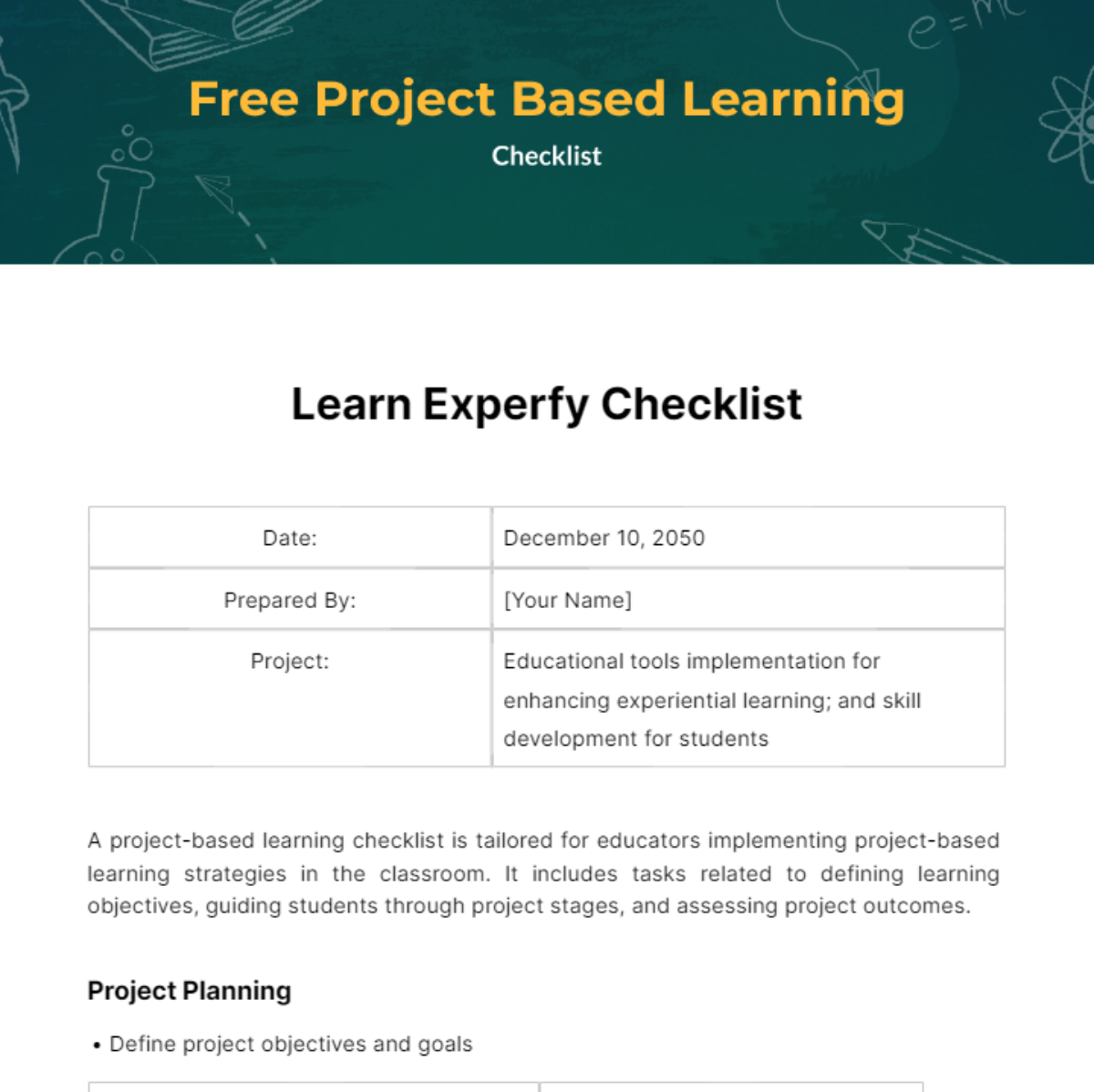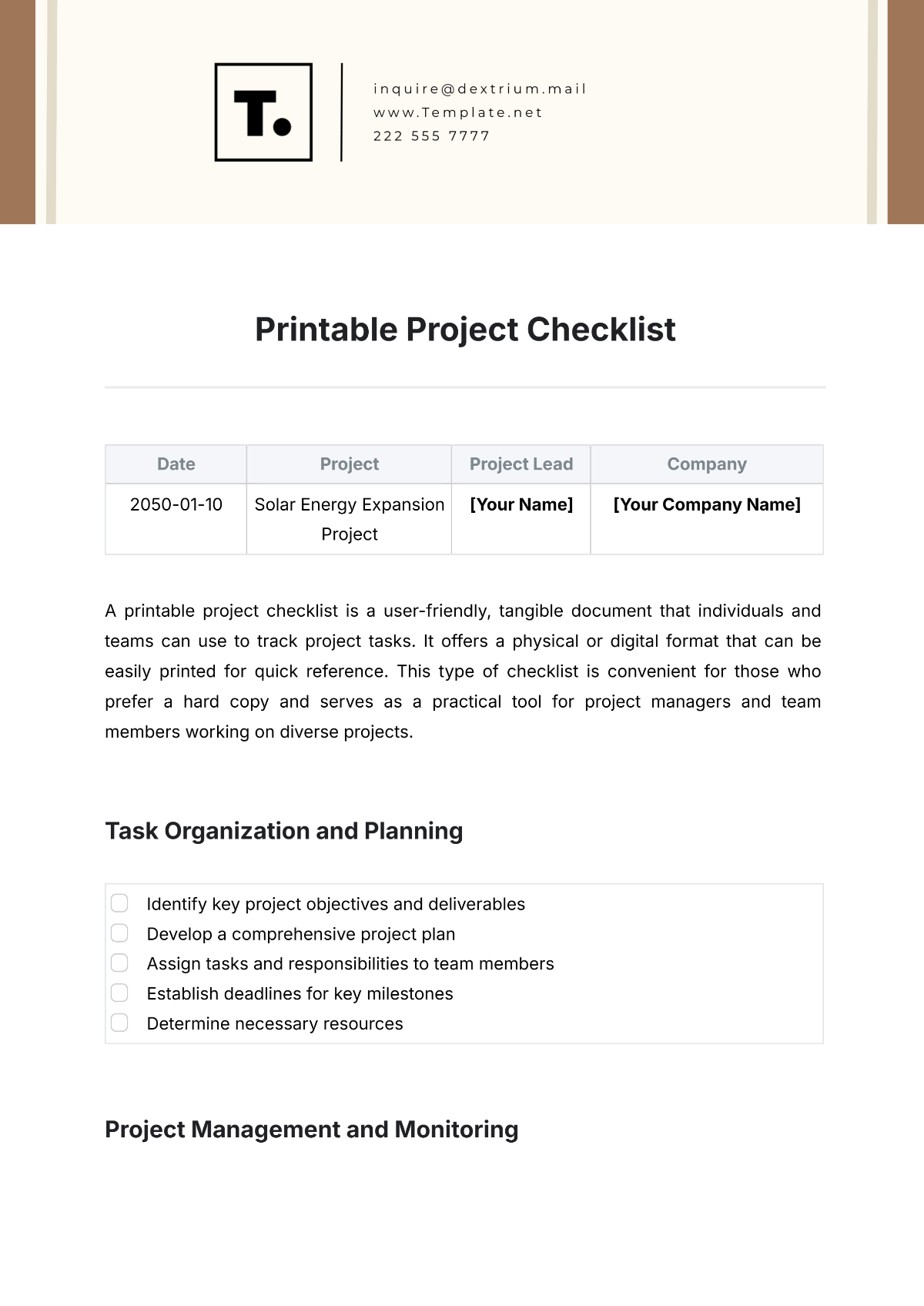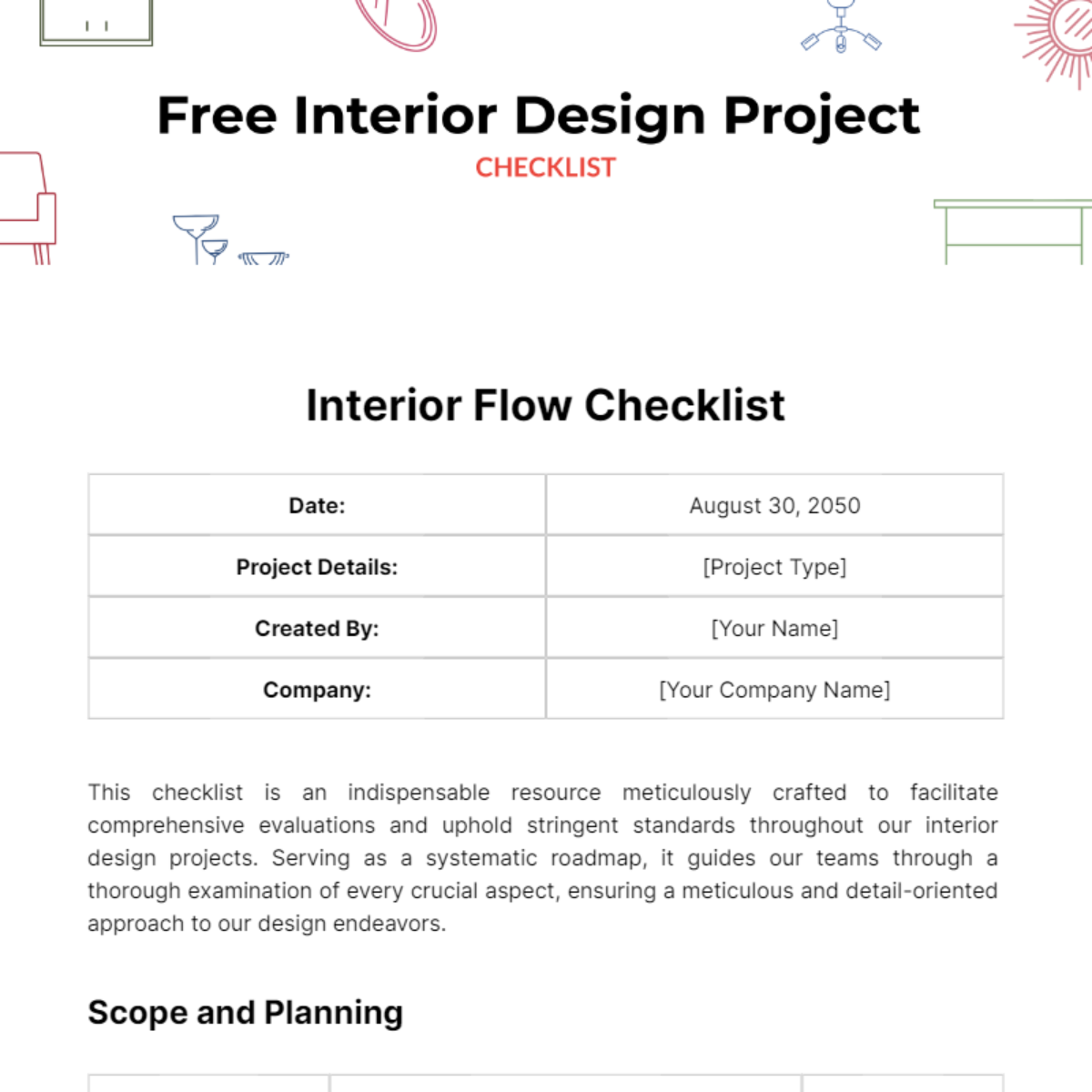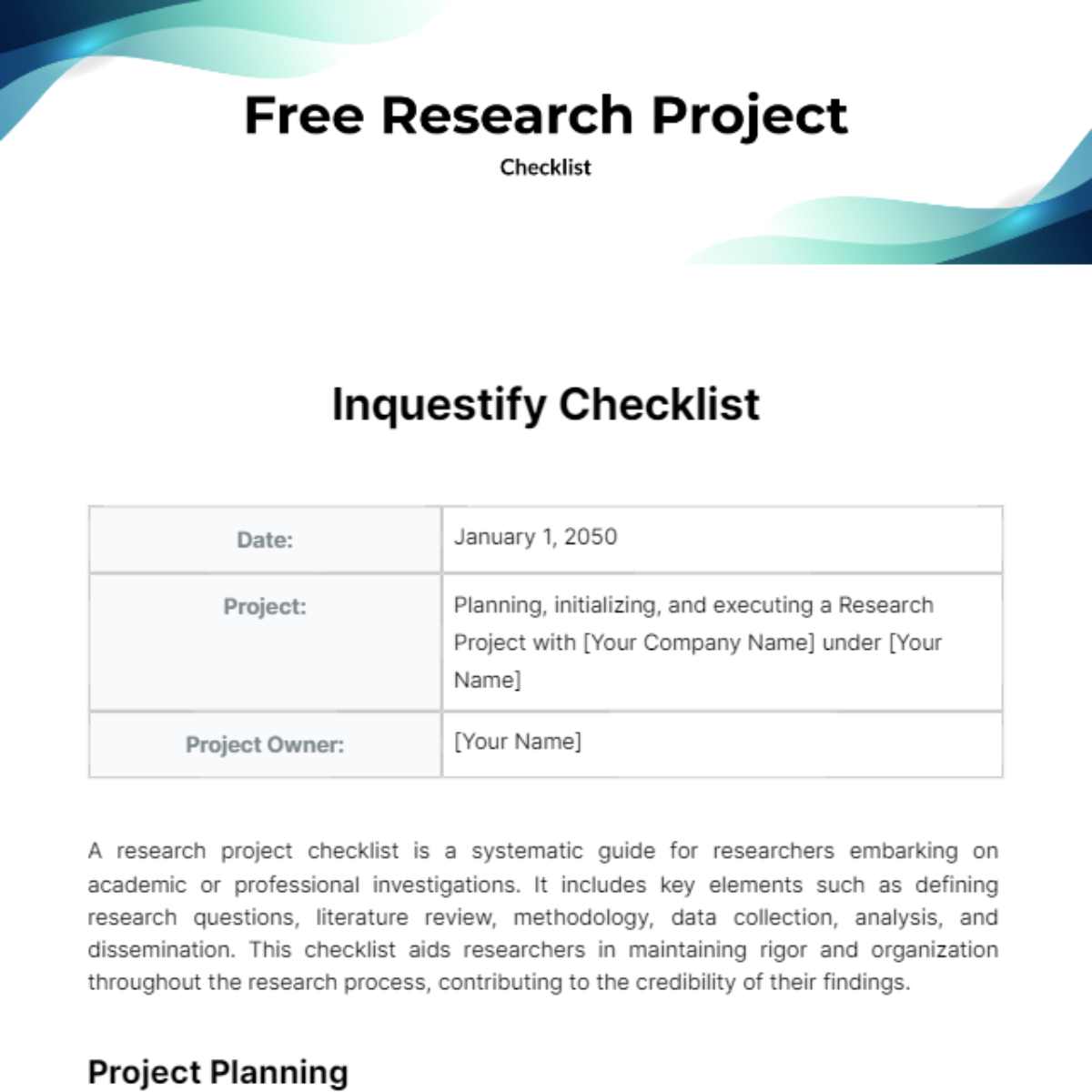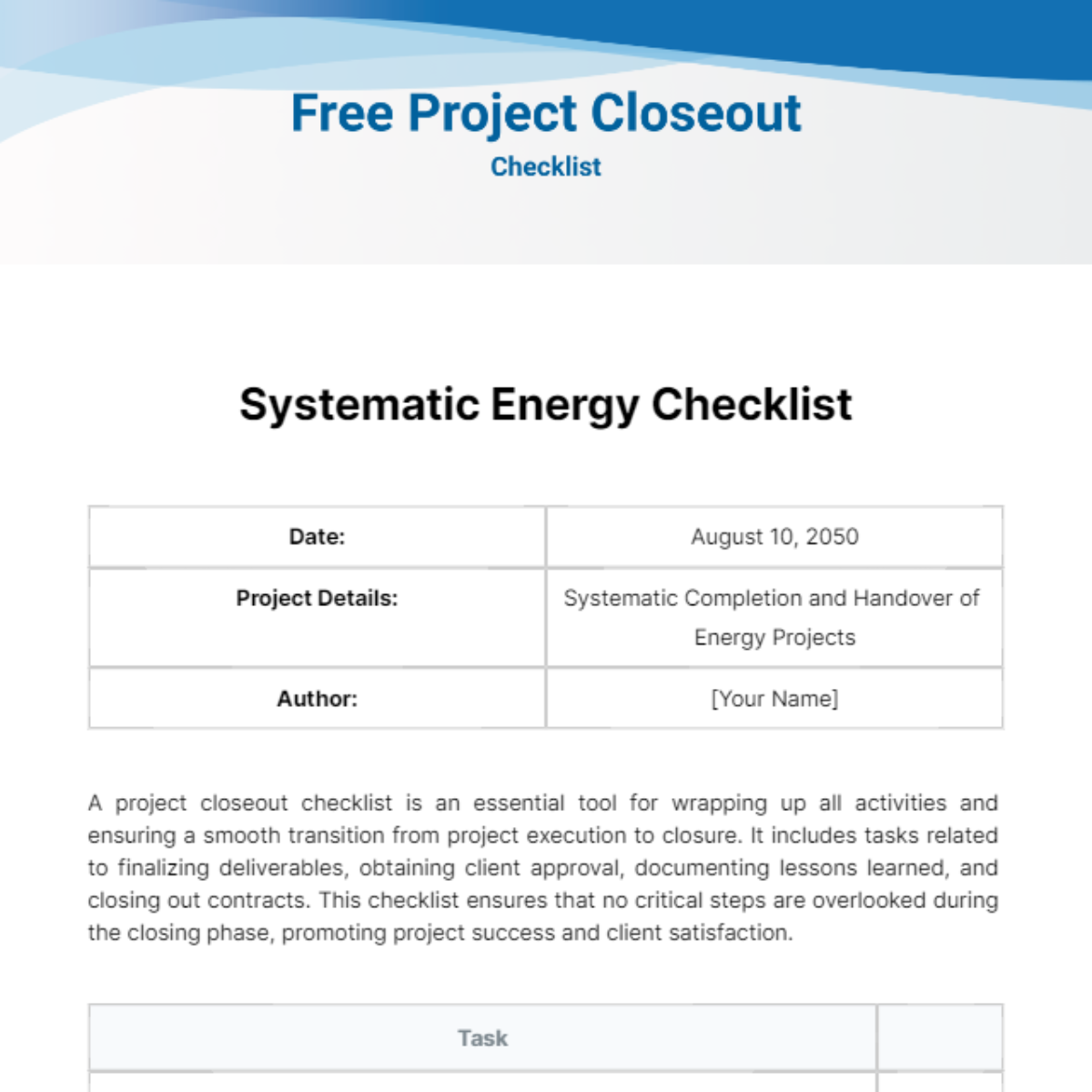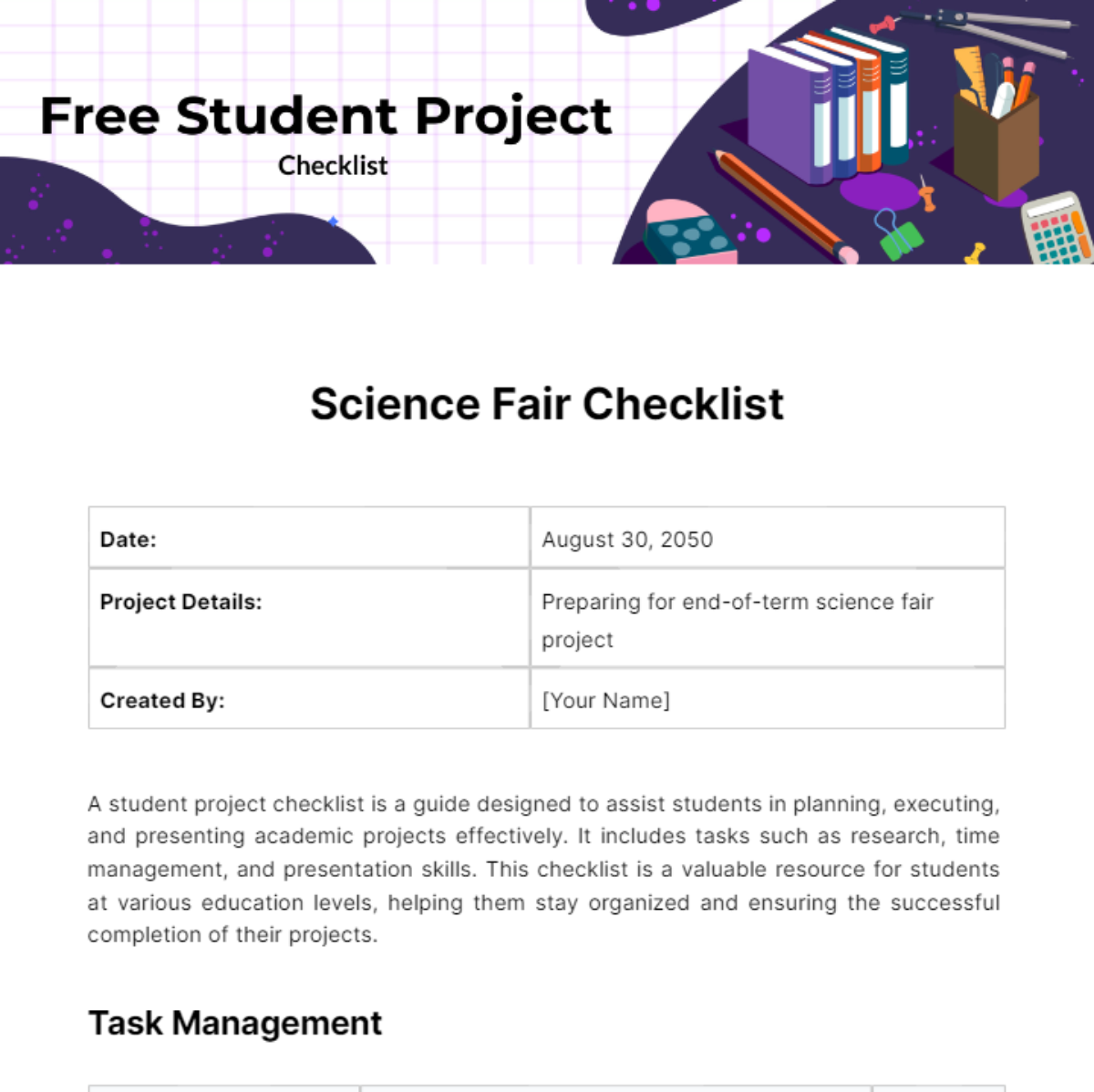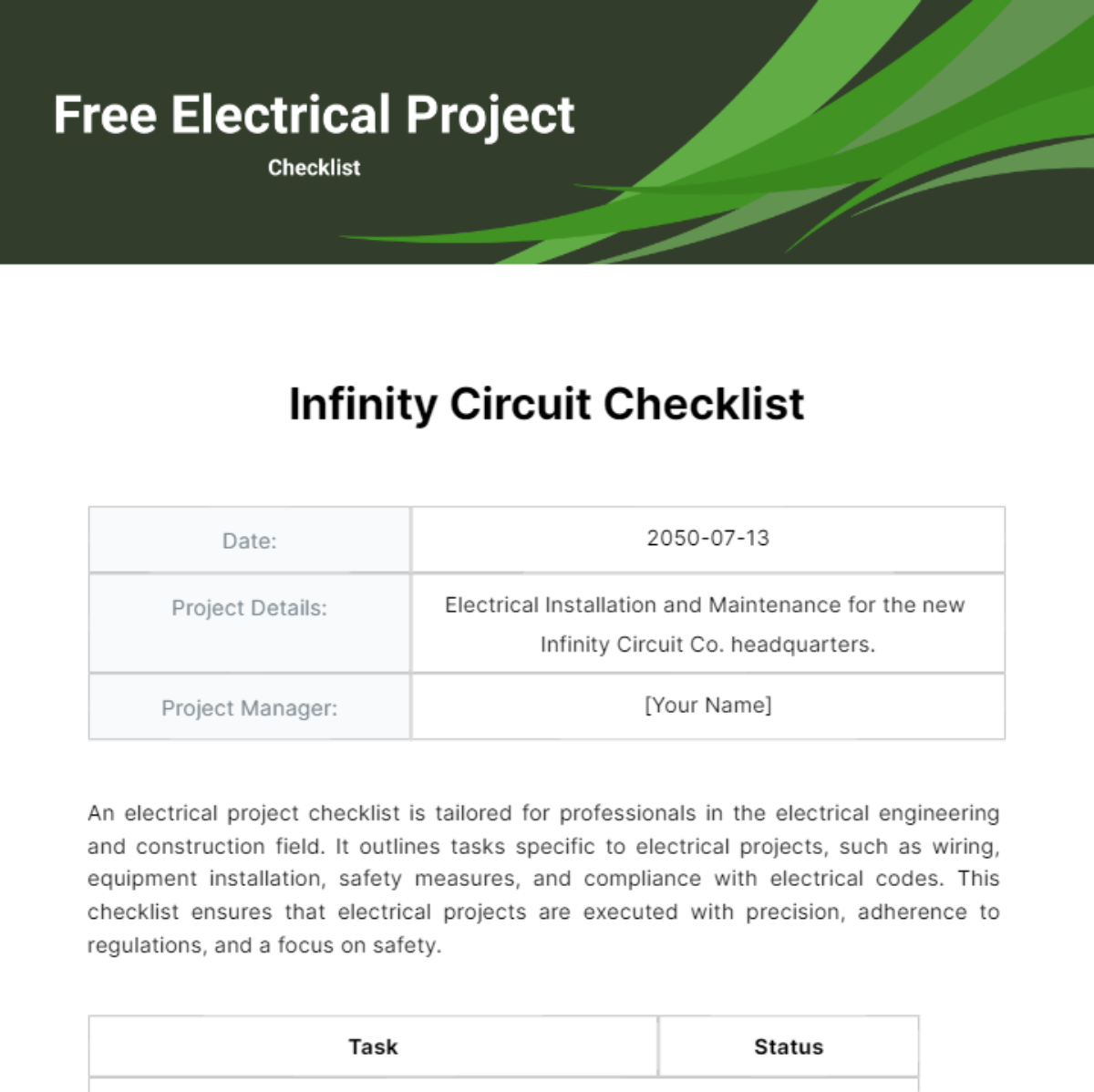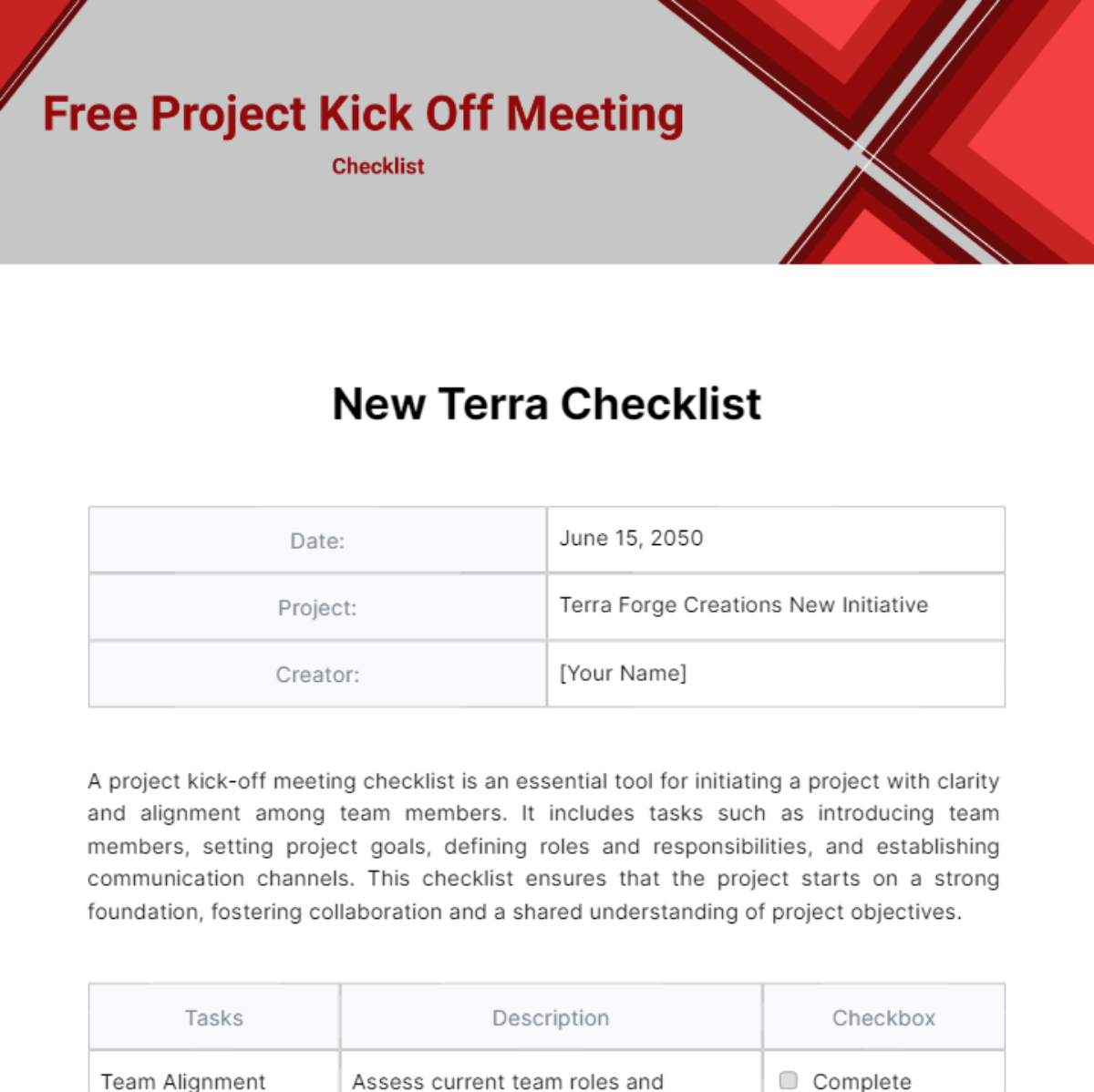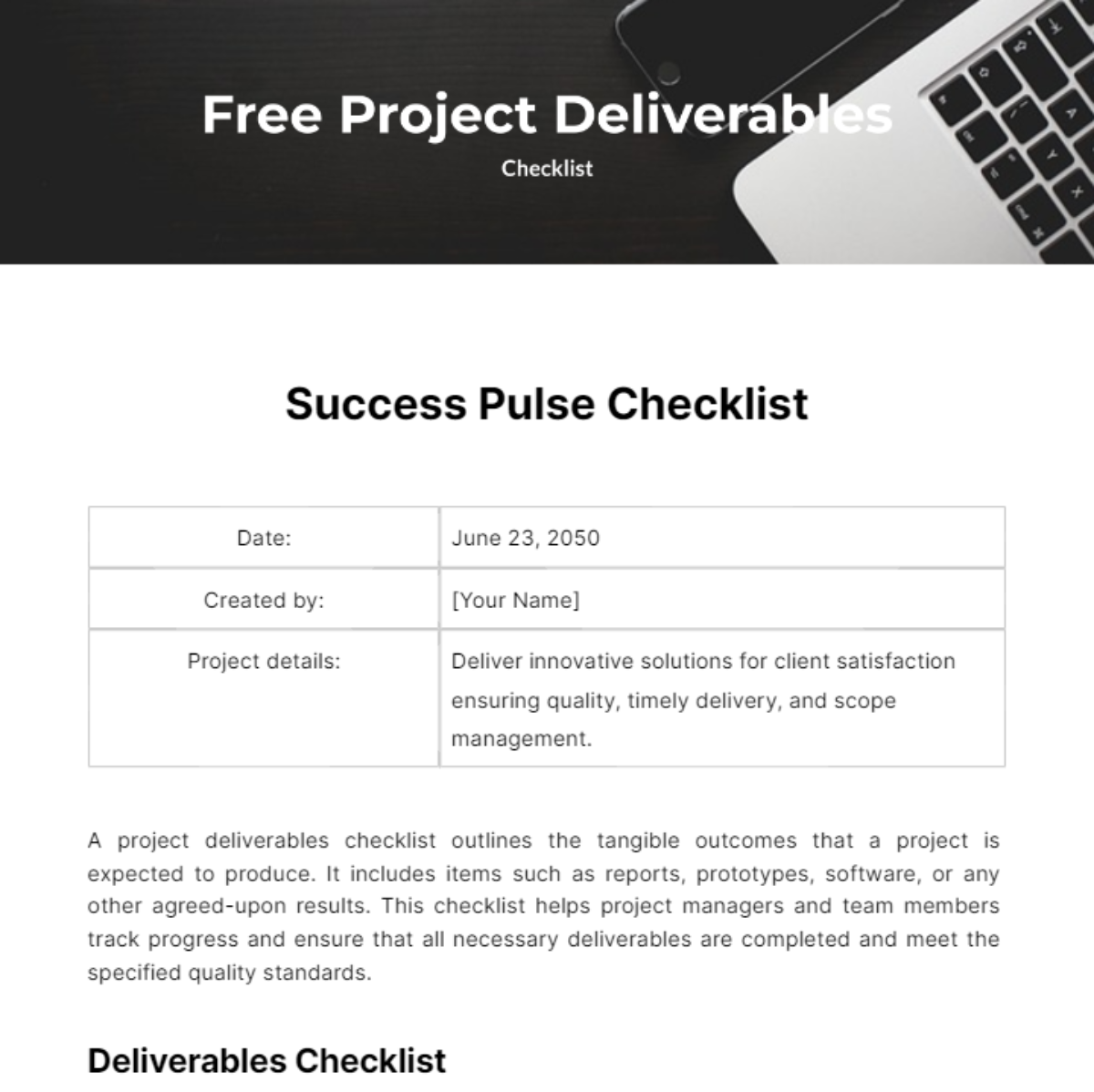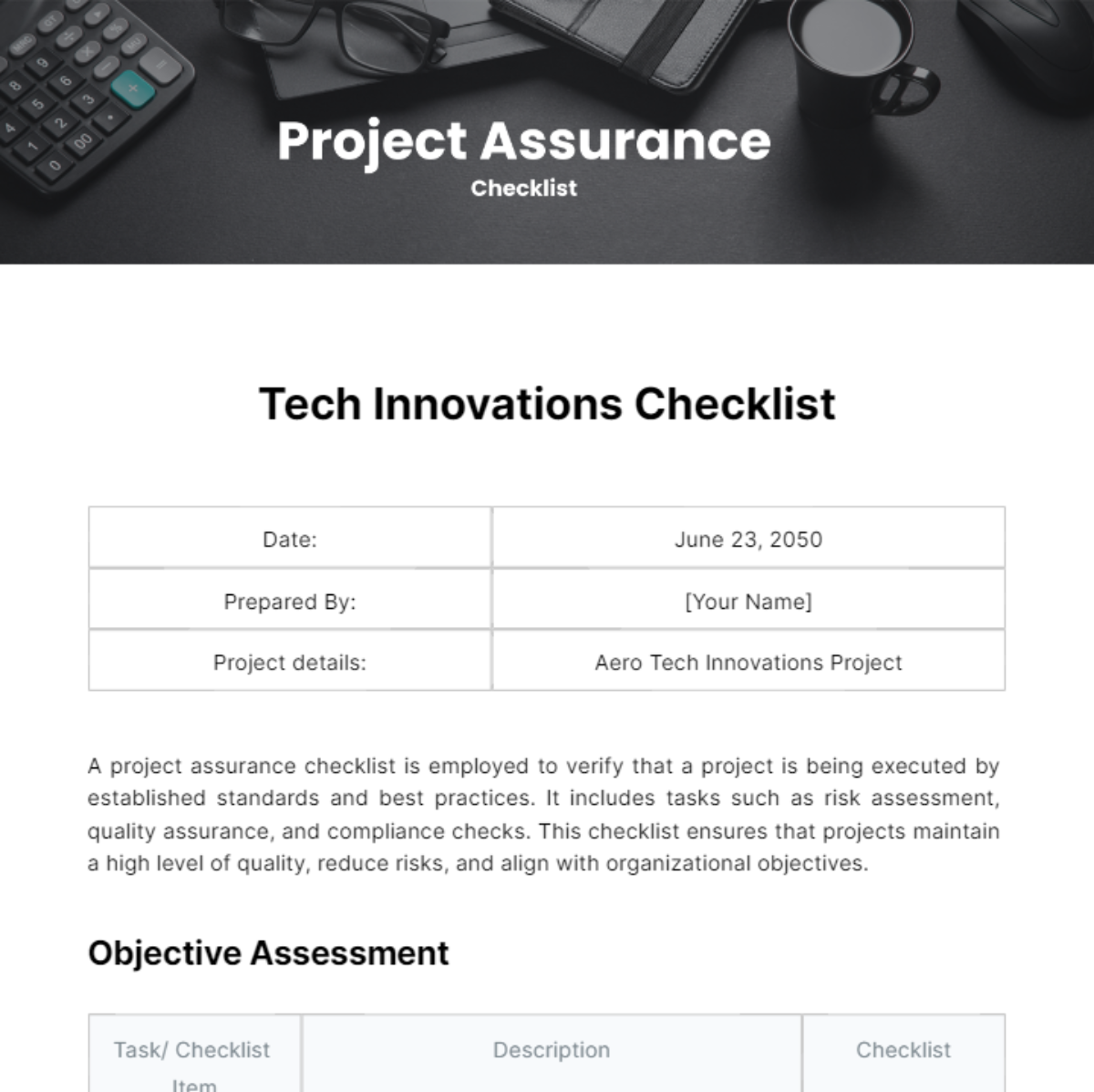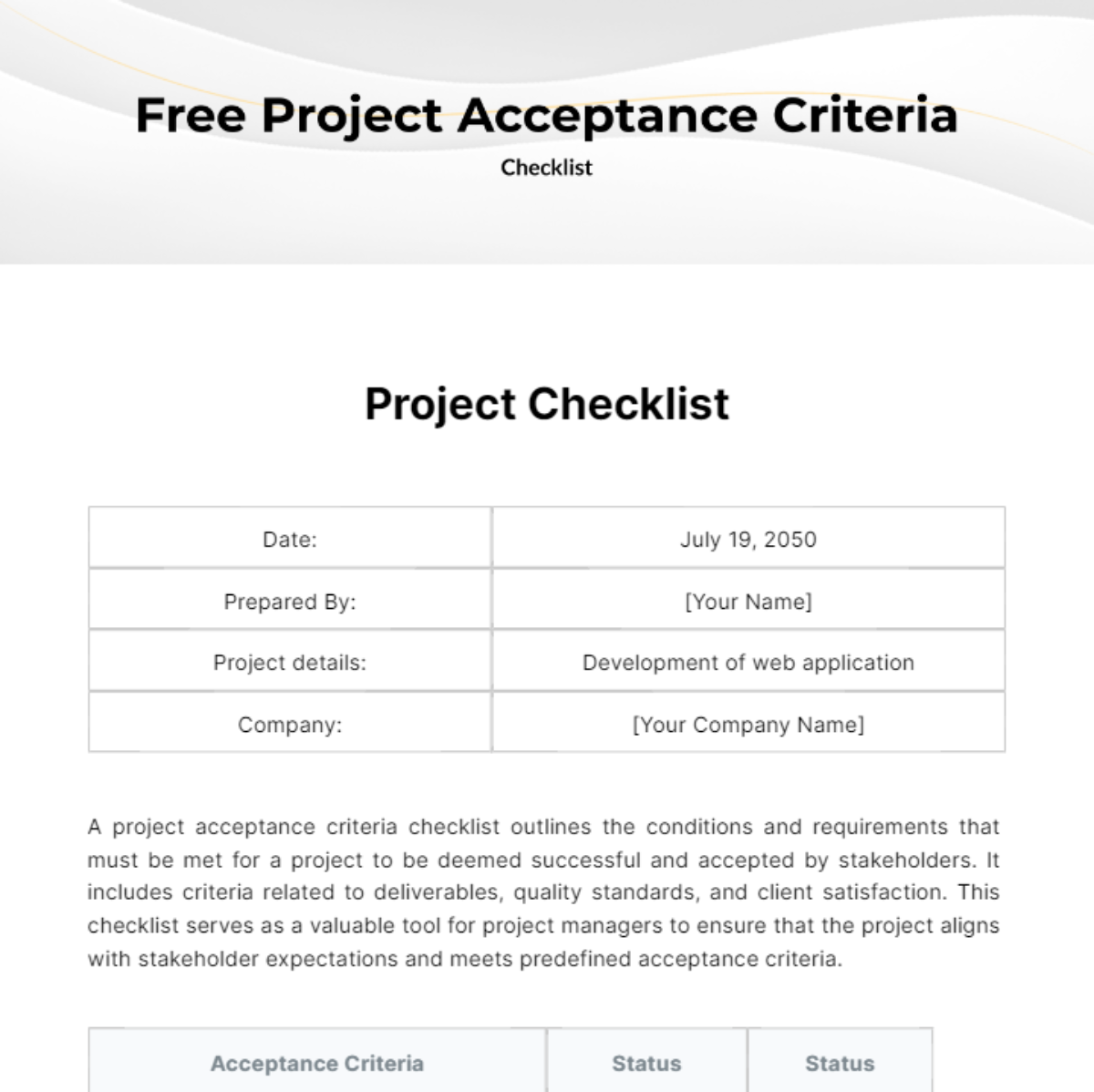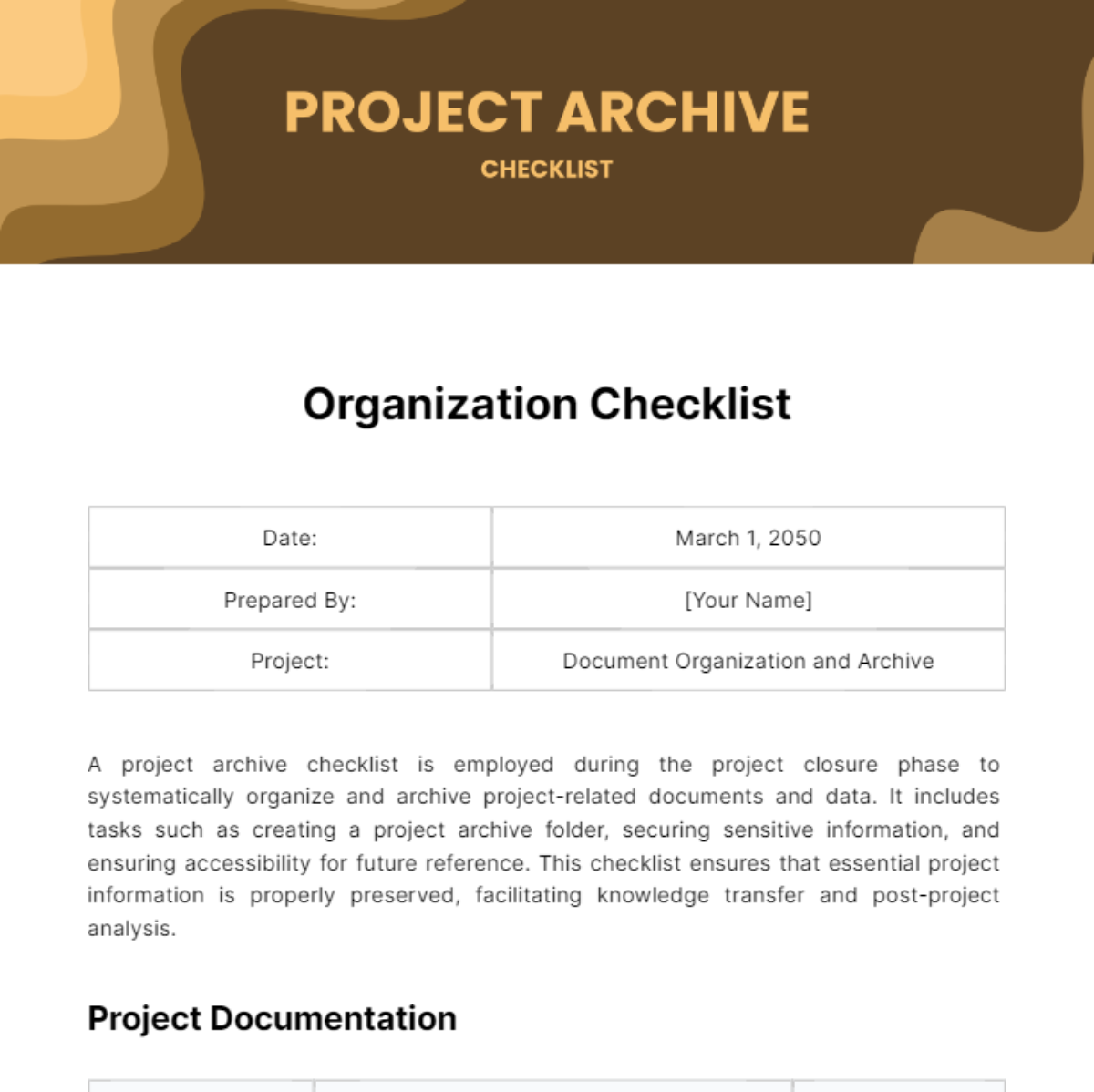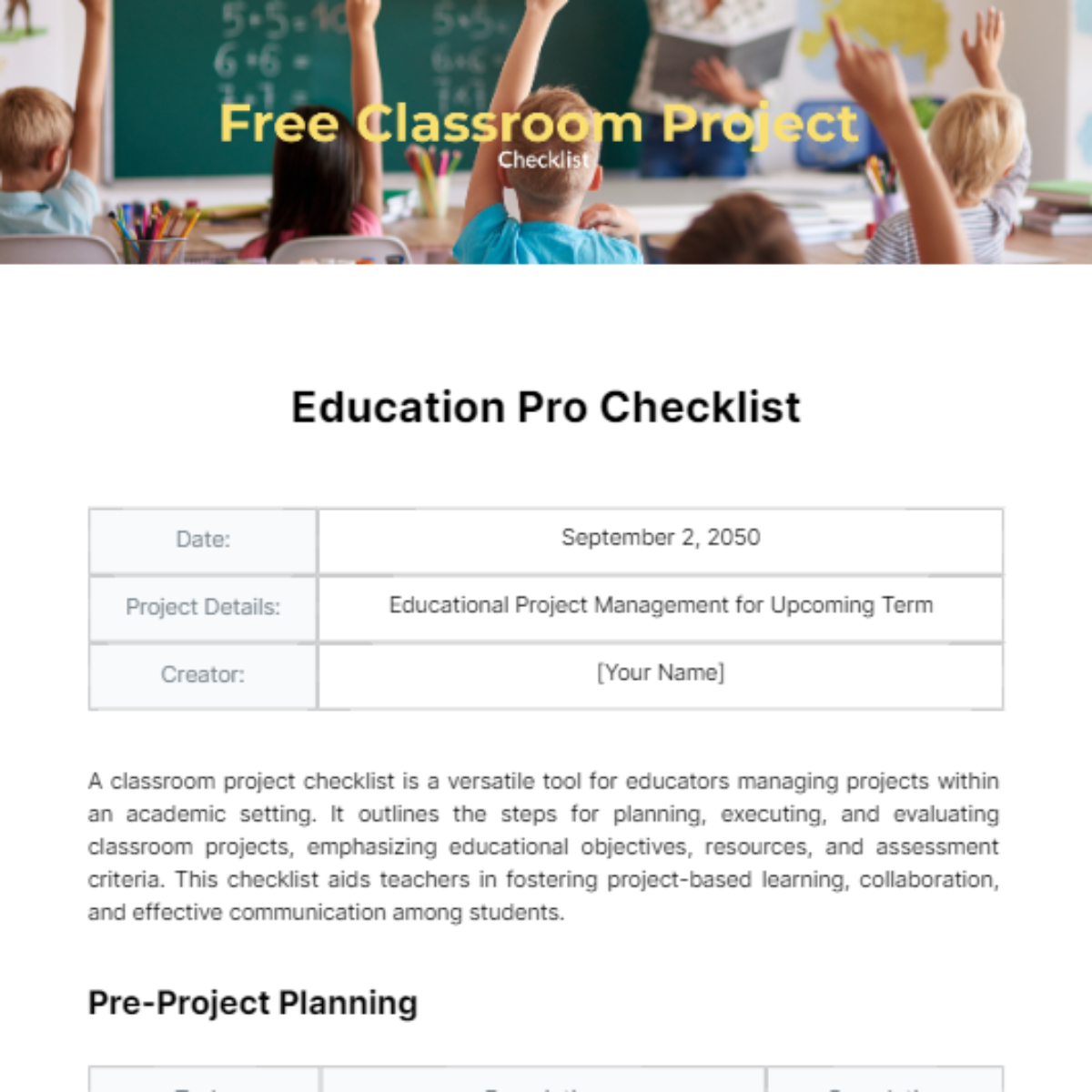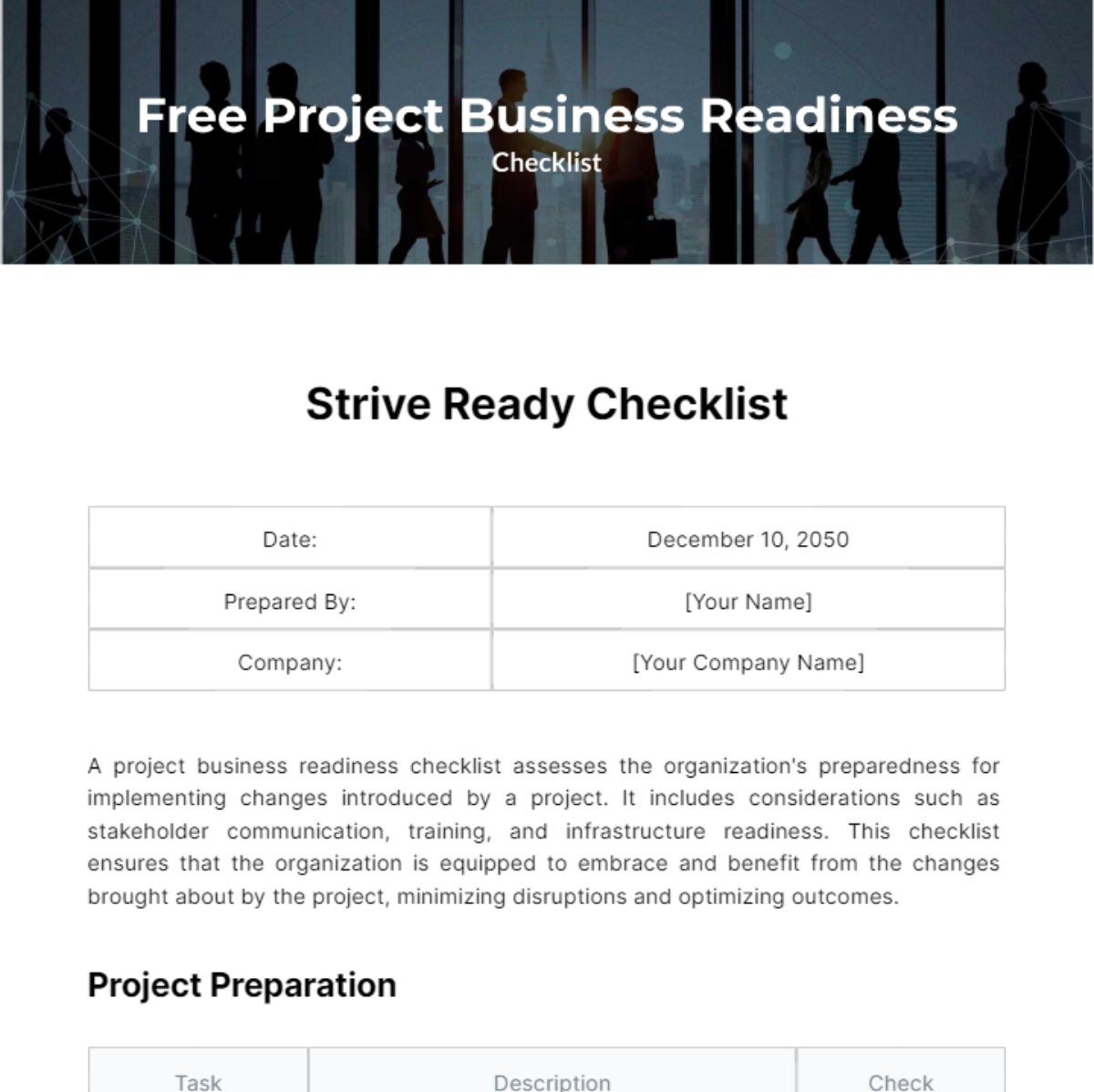Free Operations Project Milestones Checklist Template
Operations Project Milestones Checklist
This checklist outlines key milestones for managing an operations project. Tick each box upon completion to track progress. Adapt as needed for your project's unique requirements.
Project Title: | Implementing New Inventory Management System |
Project Manager: | [Your Name] |
Start Date: | |
End Date: |
I. Project Initiation Phase
Conduct initial meeting with stakeholders to define project scope and objectives.
Identify and document key project stakeholders, including their roles and responsibilities.
Develop a project charter outlining the purpose, objectives, and high-level approach of the project.
Obtain approval for the project charter from relevant stakeholders.
Establish a project team and assign roles and responsibilities to team members.
II. Planning Phase
Develop a detailed project plan including timelines, milestones, tasks, and dependencies.
Conduct a thorough risk assessment to identify potential risks and develop mitigation strategies.
Define key performance indicators (KPIs) and metrics for measuring project success.
Allocate resources (human, financial, and material) required for project execution.
Obtain necessary approvals for the project plan from project sponsors and key stakeholders.
III. Execution Phase
Kick off the project with a formal project initiation meeting attended by all project team members and stakeholders.
Execute project activities according to the project plan, ensuring adherence to timelines and quality standards.
Monitor project progress regularly and track actual progress against planned milestones.
Communicate project status updates to stakeholders and address any issues or concerns that arise.
Conduct regular project team meetings to review progress, discuss challenges, and make necessary adjustments to the project plan.
IV. Testing and Quality Assurance
Develop a comprehensive test plan outlining the testing approach, test scenarios, and acceptance criteria.
Execute testing activities to validate the functionality, usability, and performance of the new inventory management system.
Document and prioritize any defects or issues identified during testing, and work with the development team to address them.
Conduct user acceptance testing (UAT) to ensure that the system meets the needs and expectations of end users.
Obtain sign-off from stakeholders indicating their approval of the tested system and readiness for implementation.
V. Implementation Phase
Develop a detailed implementation plan outlining the sequence of tasks, responsibilities, and timelines for rolling out the new inventory management system.
Coordinate with relevant stakeholders to schedule system deployment and user training sessions.
Deploy the new system in accordance with the implementation plan, ensuring minimal disruption to ongoing operations.
Provide comprehensive training to end users on how to use the new system effectively.
Monitor the implementation process closely and address any issues or concerns that arise in a timely manner.
VI. Monitoring and Evaluation
Establish a system for ongoing monitoring and tracking of project performance against KPIs and milestones.
Gather feedback from project stakeholders and end users on their experience with the new inventory management system.
Conduct regular project performance reviews to identify areas for improvement and make necessary adjustments to project plans and processes.
Document lessons learned throughout the project lifecycle and incorporate them into future project planning and execution.
Ensure that project documentation and knowledge transfer processes are completed to facilitate future system maintenance and support.
VII. Closure
Formally close out the project by obtaining sign-off from project sponsors and key stakeholders indicating their acceptance of project deliverables.
Conduct a post-project review to evaluate the overall success of the project, identify lessons learned, and celebrate achievements.
Document and archive all project-related documentation, including project plans, meeting minutes, and final reports.
Conduct a final budget reconciliation to ensure that all project expenses are accounted for and appropriately allocated.
Communicate project closure to all stakeholders and ensure a smooth transition of project responsibilities, if applicable.
